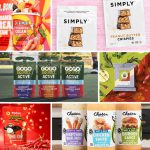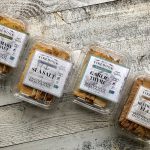Big Brands Try Out New Looks At CAGNY
At this week’s Consumer Analysts Group New York (CAGNY) conference several of the top publicly traded consumer brands announced their plans for growth in 2016. The presentations gave insight into two key areas that established, publicly traded players in the food and beverage industry will be focusing on: establishing natural bona fides and increasing snacking or on-the-go options.
One bit of analysis, the presentations showed a realization from the brands that consumers are more demanding and want more than just great packaging. Simply being a product injected into the execution scheme of a big CPG company isn’t enough to win their dollars. Instead, the companies seemed to realize that constant innovation and repositioning to be “on-trend” might now be a requirement. It’s a new look for some of these very traditional brands, and analysts will be watching to see if the new outfits fit, or fall flat.
Campbell Soup Company:
Perhaps one of the earliest adopters of big brand reinvention, Campbell’s presentation seemed to map out the way for the others, as if it was an elder statesman.
“The food industry is in the midst of a true revolution,” said CEO and President Denise Morrison. “We are living in a time of momentous change that is reshaping the way we grow food, the way we make food, the way we market and sell food and the way we eat food. We have to take a closer look at the forces fueling the food revolution because if we don’t, we all risk being left behind.”
Although the company has seen success with its recent changes focusing on fresh and engaging in strategic acquisitions, it’s certainly not resting on its laurels. Perhaps one of the most talked about announcements from the conference was Campbell’s $125 million investment in a new venture capital fund by Acre Venture Partners to seek out new food and beverage companies.
The company has recently announced it would voluntarily label which products contained GMO’s. That said, Morrison made it clear at CAGNY that while the company supported transparency, it did not support state-by-state labeling and instead was looking for federal legislation.
The Kellogg Company:
For its conventional yet beloved brands, such as Eggo, Froot Loops, JIF, and Cheez-It’s, Kellogg’s is staying the course by focusing on slight twists on classic products.
Yet for its natural lines (a large focus of the CAGNY presentation), Kellogg is shifting its perspective as it doubles down.

The brand is looking to trends such as unique grains (Kashi Teff Crackers), plant-based protein options (Plant Power GOLEAN clusters), alternative nut butters (Bear Naked Cinnamon Sunflower Butter Granola) and greens (Kashi Organic Breakfast Super Blend smoothie powder).
The brand said that it recognized sales of some of its natural brands were weak the past few years, but also felt that it had to achieve certain milestones before investing back in the brand. This included non-GMO Project certification for several lines, switching certain products to be organic, and finding new ingredient options, such as soy-free protein.
Paul Norman, Kellogg Sr. Vice President and Kellogg North America President, said that for Kashi, the changes now allow the company to “now lean in and communicate to those food forward consumers to really kick start the growth…something we haven’t been able to do over the past year until we got the food exactly where it needed to be.”
Tyson Foods, Inc:
Like Kashi’s shift from diet to wellness, chicken processor Tyson has moved its focus focus from being a “meat” company to being in the “protein business,” a nod towards the buzzworthy-ness of “protein” in the CPG space right now.
While jerky, hot dogs and sausages may not seem like healthy options, Tyson’s presentation noted that “78 percent [of consumers] say [protein] is critical to a healthy diet.” This is especially true for consumers looking for low-carb or paleo options.
In order to capitalize on these segments, Tyson has expanded its offerings and, in some cases, focused on elevating its offerings to appeal to a higher echelon of consumers.
Looking at newly released products, Global Chief Growth Officer Sally Grimes compared its Hillshire Snacking small plate sets to a “restaurant charcuterie tray” and said “consumers are thrilled to get two low-carb frittatas for under 300 calories” with new Jimmy Dean Frittatas.
Moving forward, in 2016 Tyson will release a new e-commerce-only line of chef-inspired meal kits called Tyson Tastemakers. The line will feature aged, marinated or smoked meats in innovative flavor combinations — many of which come with low-carb sides.
The J.M Smucker Company:
Smucker has four pillars it’s focusing on in order to meet the needs of changing consumer preferences: simple ingredients, nutrient rich foods, added convenience and mindful snacking.

Most recently, emulating a popular natural food product, Jif released a peanut butter powder that can be blended into drinks or mixed into baked good for a protein boost.
Also at CAGNY, Smucker announced a minority investment in Numi Organic Fair Trade Tea, which will likely complement the company’s robust coffee portfolio.












